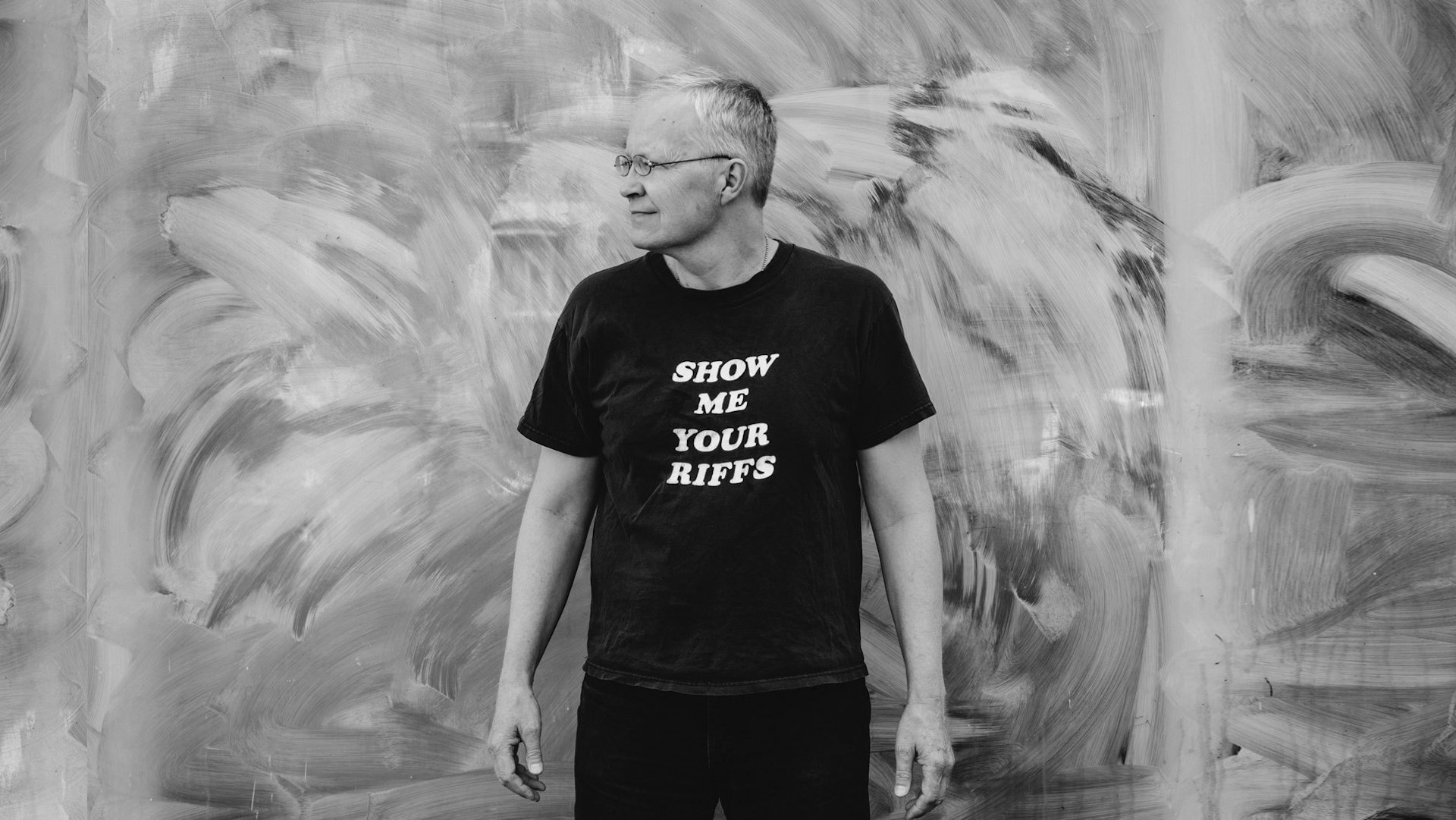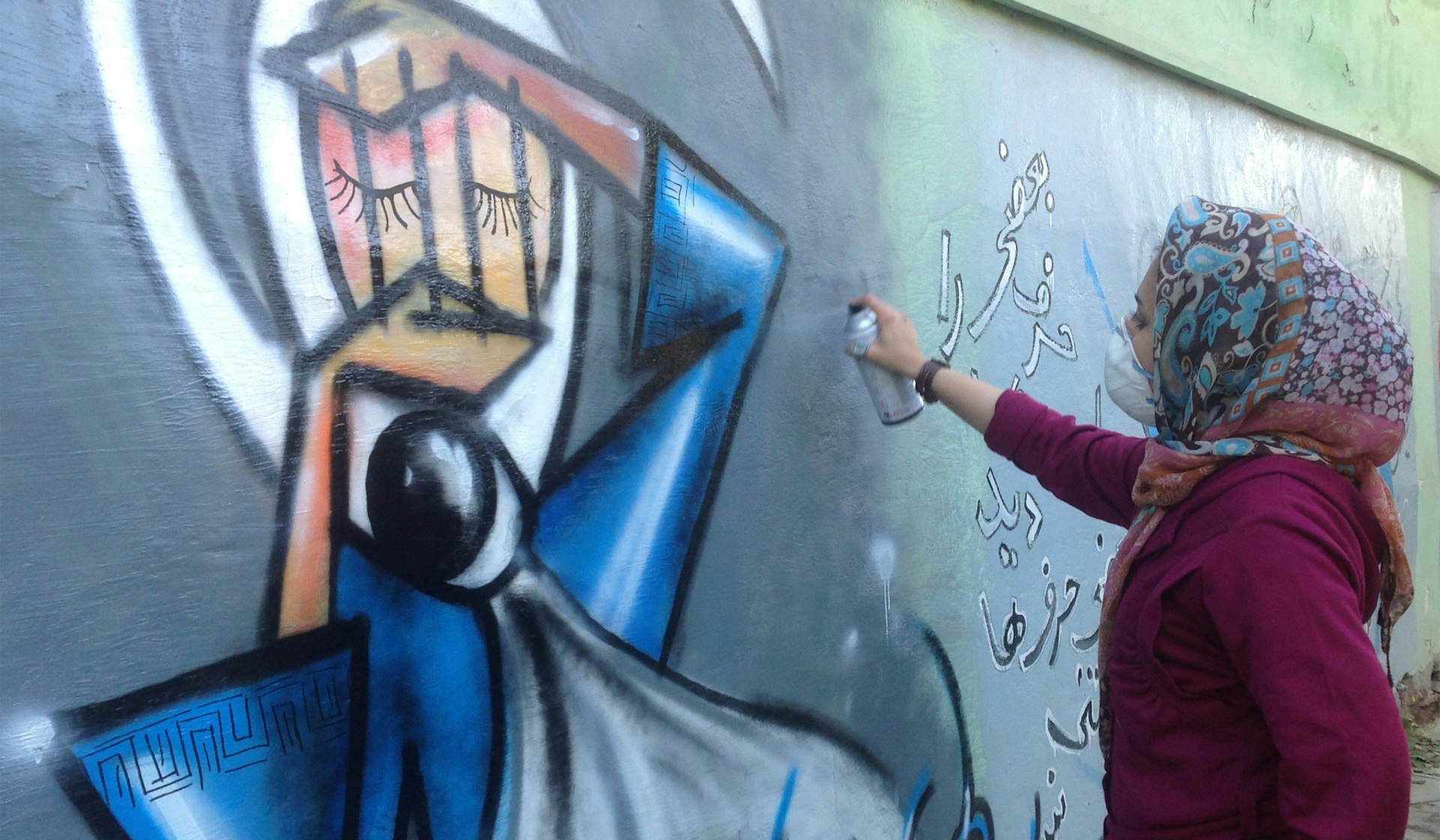
Positive Force
- Text by Shelley Jones
- Photography by Owen Richards
“Revolution has to begin in the ruthless criticism of everything existing.”
Or so says the Marx quote that opens Robin Bell’s new documentary More Than a Witness about Washington DC-based punk activist organisation Positive Force. It’s summoned by one of the organisation’s co-founders Mark Andersen, who goes on to quote Bakunin too: “The destructive urge is also a creative urge.”
Combined, suggests Andersen, these quotes form the essential politics of punk. “It’s an all-out assault on business as usual,” he says, animatedly on camera, “on society, on the state, on religion, on the family. All of the sacred cows are subjected to the withering, truth-seeking gaze of punk.”
Positive Force emerged in 1985 – “rising from the creative, politically-charged ferment of DC punk’s Revolution Summer” – and Robin Bell transports us back to this heady era of political culture through archive footage of local bands like Fugazi, Nation of Ulysses and Bikini Kill and contemporary talking-head interviews with some of punk’s most influential pioneers – from Ian Mackaye to Penny Rimbaud (Crass).
Mark Andersen, however, is the anchor around which the film gravitates. Although Positive Force once had a network of a dozen groups around the States, Andersen’s faction, in DC, is the only one still active.
The group has a storied history – their Positive Force House (“a garden of radical possibilities”) teetered between serving as a hotbed of anti-systemic dissent and a more constructive community centre – but their commitment to making real social change through music, and culture in general, has been an inspiration for activists the world over.
We caught up with Mark to find out more.
When did Robin approach you about the film?
Robin approached me in 2009. He had been thinking about it for awhile, and even talked to Ian MacKaye to get advice about whether to do it, since it was going to be a lot of hard work and would require some serious fundraising to do it right. When Ian encouraged him, Robin decided to take the plunge.
Why did you feel that now was the right time to tell the Positive Force story?
Well, it really wasn’t my call. Robin wanted to do it, I trusted him, so it was simple to decide to help out. Also, Craig O’Hara at PM Press was key in this, because when he heard about this film, he was excited to put it out as a DVD. His support and enthusiasm has been extraordinary, we are lucky to be working with him.
What message do you hope the film leaves behind?
That people have the power to change themselves and their world. Together we can really do anything we put our minds to, as long as we also put our back into the work, and take care to make space for each other.
The film wrestles with a lot of contradictions within activism – disruption vs constructive community work, hierarchy vs horizontal etc. At this stage, do you feel like you’ve worked out the perfect way an organisation like this can exist?
I don’t know that there is a perfect way to do activism, or for an organisation to thrive. But I do have some sense that there needs to be enough structure to keep the group on the rails, getting things done, but not so much as to stifle individual initiative or creativity. Relationships are also key. It is a tricky balance to strike, and depends on folks with different attitudes or approaches to find a common ground to work from together. Do it yourself and do it together, in other words.
The 1980s was a great time for politically conscious culture. Do you see that spirit alive in contemporary art and music now?
Honestly, much of contemporary culture seems pretty sold out and safe, not wrestling with the big issues or trying to take a stand, to put yourself on the line. There are exceptions of course, but that is how I see it. Having said that, this tends to be the reality always, as human beings tend toward a certain passivity. Let’s remember that Reagan and Thatcher ruled the 1980s ultimately; we fought them but we lost, for now. Moreover, there are forever powerful commercial forces trying to just keep us consuming, making them more and more money, and trying to keep us from questioning the system or building a new, better one. At the same time, we can choose any time to fight back. And we must. Every bit helps, and we are all called to play our role. To be, “More than a witness,” if you will.
Why do you think figures like Ian Mackaye and Penny Rimbaud have been and remain such role models for a certain type of socially conscious punk? What is it about them that endures?
Ian and Penny – or other folks such as Gee Vaucher or Kathleen Hanna – are the real thing, as deep and true as the ocean. They ‘live the life” but – as punk would tell us – so can each of us, if we really want to do so. It is not easy, to be sure, but the rewards of living in some authentically conscious and compassionate way are immense, for ourselves and our world.
Positive Force has encouraged people to look at the injustice on their own doorstep. Do you think change is something that has to happen close to home before it can happen elsewhere?
‘Here’ and ‘there’ is too simple of a dichotomy. As we know, everything is connected, especially in this globalised world. However, a focus on the injustice somewhere else without wrestling first and foremost with that injustice right here amongst us is a danger, even a cop out. Change has to happen on all levels: personal, local, and global.
We live in the age of ‘corporate social responsibility’ and Bill Gates, who wants to ‘save’ Africa. What is your opinion on top-down humanitarian work compared to grassroots activism? Are we all on the same side?
It is hard to ignore the good that big money donors can do, but ultimately their money has to fuel transformation at the grassroots or it is not real. Of course, we also have to question systems that allow individuals to accumulate such huge mountains of money while others starve. In the end, this has to change as well, though in the short term, money from anywhere that helps people survive day-to-day is a good thing, I think. There is inevitably a certain element of thievery in how the rich make their money; thus they need to give it back, and the best of them realise this. As the [seventeenth-century English agrarian socialist group] Diggers said, “The earth is a common treasury for everyone to share.”
You must have seen a lot of volunteers pass through. Do you keep in touch with many? What kind of things have Positive Force volunteers gone on to do?
It has been hard to stay in touch sometimes, and remains so, though innovations like Facebook can help to some limited degree. PF members have gone on to start their own organisations, to write books, to be professors, community workers, lawyers, doctors, parents, and beyond. Punk – like revolution – is relevant in any circumstance you find yourself, and I have often been inspired by the creative ways my PF friends have expressed their ideals as they’ve grow older and entered into more mainstream society. Those human connections, those relationships remain perhaps the most powerful and positive legacy of Positive Force, I’d say. When we come together, people have immense and ultimately unstoppable power. So we need each other. As Chumbawamba said, “Isolation is the biggest barrier to change.”
Is Positive Force still active? If so what does it work on these days?
Absolutely. PF still does what it always did, organising benefit concerts, educational events and creative protests, as well as direct service work with seniors, the homeless, and other marginalised folks. Above all, we are trying to build caring, just and inclusive community, bringing people together across boundaries like race, class, religion, sexual orientation, culture, nationality, and even language.
What is the connection with We Are Family?
We Are Family is one of PF’s most critical partners in the above mentioned mission, and PF volunteers are crucial to We Are Family’s work, together with volunteers from many other diverse communities.
Is there a religious agenda?
Not for the group, though some members may well be driven by their religious convictions, just as others are driven by their anarchist convictions or socialist convictions etc.
What are your plans for the future?
To keep trying to find ways to remind people of the immense power and responsibility that we share for building better selves and a better world. As always, we all must do whatever we can with whatever we have wherever we are, right now. As PF has often said, “The revolution starts now with you.”
You can find out more about Positive Force and the More Than a Witness documentary on their respective websites.
